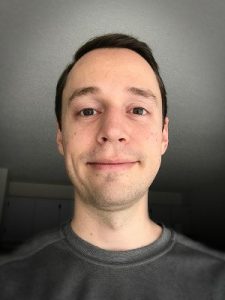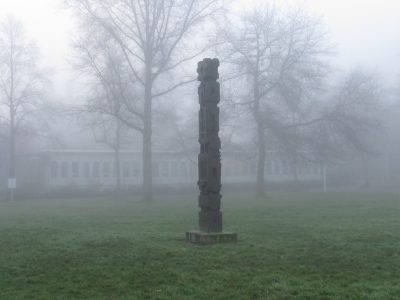Somewhere in my academic career I started trying to write novels. It wasn’t a decision I can pinpoint. It crept up on me through multiple fronts: my sister working for the Greater Victoria Public Library; a past girlfriend who had a sister married to the brother of epic-fantasy author Brandon Sanderson; free lectures for writing fiction by Brandon Sanderson on YouTube; a past roommate on the autism spectrum whose life revolved around fiction; and many friends who dabble with the idea of writing stories. Combine all this with my unending curiosity, and the result is years of my dissertation developing in parallel with multiple creative writing projects.
Underneath the curiosity, I felt that if I could write a novel, then a dissertation would be that much easier because I would have full command of the written English language. I should point out that my research area is in the sciences. If I could find a way for my brain to run a marathon, creative writing seemed like a healthy exercise.
As the years marched on, and my commitment to learn the craft of storytelling grew more earnest, I came to the realization that most authors spend at least four dedicated years in a degree program writing essays to refine their skills—which I don’t have—so there’s probably still a long way for me to go here. Upgrade my efforts to an ultra-marathon after bench pressing 500 lbs. Probably not healthy.
So I can save you the troubles I’ve been through and point you in the right direction if, like me, you also want to push your brain to its limits. If you are in the sciences, my suggestions are overkill, but still have benefits, and if you are not, then they might just be a nice addition to your skill set. Perhaps you want to write novels. In my present case, a wonderful surprise turned out to be how much easier it is to write documents of any kind, especially career oriented ones such as cover letters and teaching statements. It also made getting feedback from my supervisor much more tolerable.
The best piece of advice I can give is to make writing a part of every day. The easiest way to do this is to combine it with whatever entertainment you consume. Take notes on the shows you watch. I use Google Drive for this and all my other notes on writing. Most shows out there have commentary by YouTube podcasts and I look for those that grow my vocabulary.
There’s no shortage of videos online and books you can get on becoming an author. I found many of them to be repetitive. However, sadly, much of the advice is not helpful, and I have been fortunate to find the few sources that can actually prove it with science. A great place to start learning how to write fiction properly, no matter what your skill level, is a book called Story Genius, by Lisa Cron. She debunks the useless advice, and gives you a plan that avoids the big editing mistakes that waste time.
I’ve spent a lot of my education using formal logic, so I was delighted to see that writing approached from the perspective of journalism makes heavy use of logic. Finding topics is a matter of exploring logical patterns in everything you observe and proving their existence. Trying to refine this skill has helped me in my research, since this is creativity in a nutshell. This process is explained robustly in A Writer’s Coach, by Jack R. Hart.
Actually, I do have course credits with a superb textbook for grammar, and I still reference it often: Understanding English Grammar, by Martha Kolln and Robert Funk. I consider this the resource for word and sentence-level expertise only. Beyond this, if you want to know the impression your writing leaves, then Writing Tools, by Roy Peter Clark brings a large set of available skills. If you need advice at the story level, a freelance editor named Ellen Brock on YouTube provides not only videos, but organizes a novel boot camp on occasion. On her blog, she gives feedback on story submissions, and I find this is a good gauge to compare myself with other wannabe authors.
Creative writing course lectures for Brandon Sanderson’s BYU class are on YouTube. There are multiple iterations of it, each on different channels, but the most recent one for winter 2016 on Camera Panda really is the best one to watch, both in terms of video quality and content. Ignore the advice on the spectrum between plotting a novel or free-writing one. There’s no way around planning your writing if you don’t want to throw away much of what you write and you want an effective outcome.
I’m looking to connect with other fiction writers to form a support group. If you are interested email me at: ctrain79@uvic.com
Russell Campbell is a Ph.D. candidate in computer science and has completed a Master of Science in discrete mathematics, both at the University of Victoria, as well as a Bachelor of Science in mathematics at the University of the Fraser Valley.
